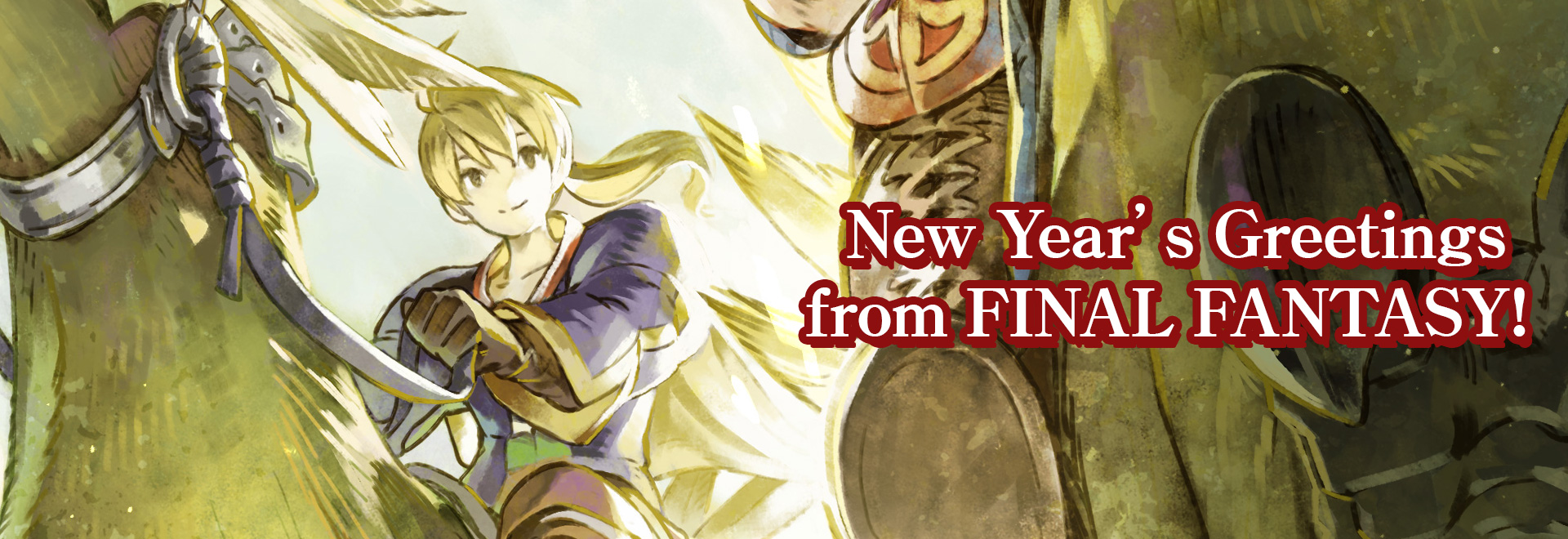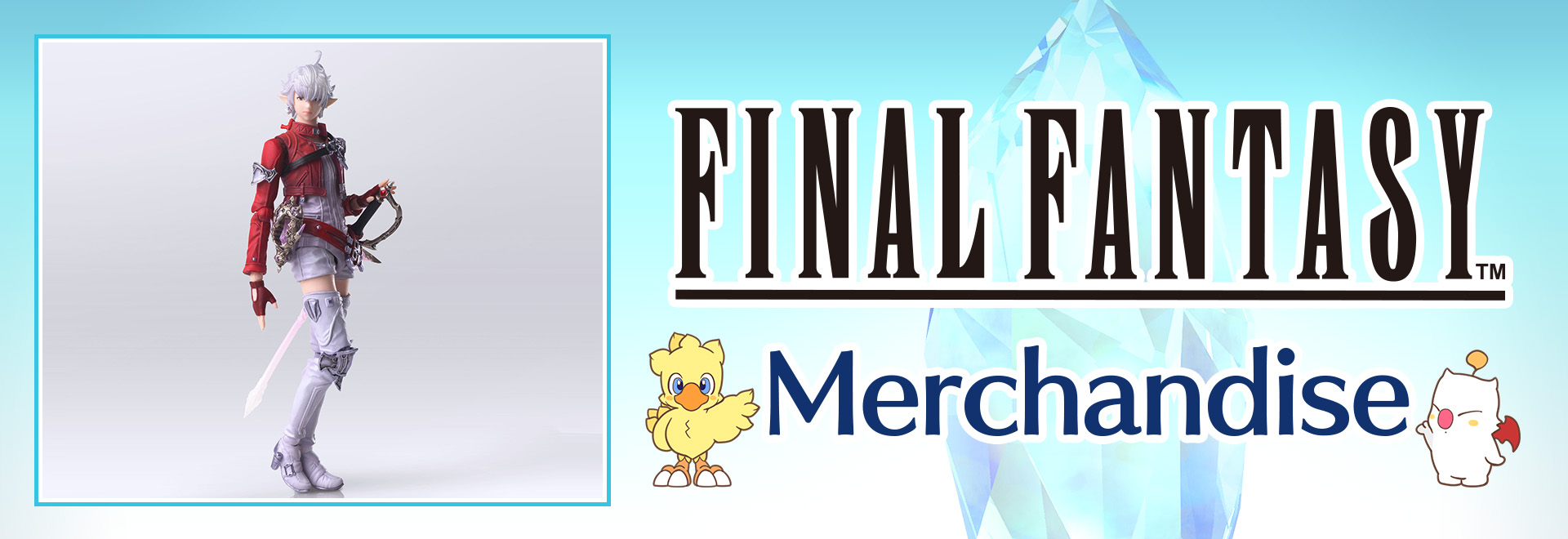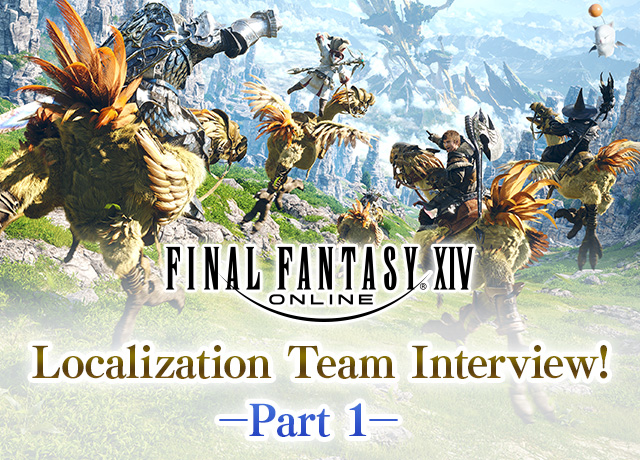
FINAL FANTASY XIV is an ever-expanding MMORPG with over 20 million* registered players all over the world, which means it needs to be playable in many languages! We spoke with members of FFXIV’s localization team—including a localization project manager, English, French, and German translators—to learn what goes into adapting such a title for global audiences.
In the first part of our interview we ask about FFXIV’s localization in general, from how the localization team is structured to what makes FFXIV’s localization unique, and more!
*Combined number of registered players in the five regions Japan, North America, Europe, China and Korea as of February 2021. Includes free trial accounts.
Interviewees:
- Kathryn Cwynar (Lore Consultation & English Translator)
- Pierre Pasquier (French Translator)
- David Fehrmann (German Translator)
- Maki Shiota (Localization Project Manager)
●What makes localizing an online multiplayer title like FFXIV different from titles that offer purely single-player experiences? Also, approximately how many people are involved in FFXIV’s localization?
David (German):
Online games evolve over many years, continuously expanding both story and lore. With each update, new content and systems are added and the project becomes more complex. This is both exciting and daunting at the same time, as your work defines how the players perceive this evolving world in many ways—from the dramatic encounter between mortal enemies to the naming of an inn or area.
Secondly, we aren’t just dealing with a single protagonist but with millions. For each and every player, the story is designed to make them feel unique and central in saving the world. While it is not always easy to portray the content as an organic team effort between several protagonists instead of a single hero or heroine, I think FFXIV is doing very well in keeping this feeling of being unique for each and every player throughout the main story and intertwining most other content with it.
Maki (LPM):
For English, German, and French, we currently maintain a team of five to six translators per language. We also borrow additional help in particularly busy periods─during the development of the expansion pack, for example.
As for what makes the FFXIV team different from what we have on other projects: lots of things, but what stands out most is how very much a team it is, haha. The nature of the project means that everyone, including localization, QA, and sound department members have been working together since A Realm Reborn at least, so we are all very close.
On any other project, the localization staff would be involved for two or three years at most before moving on to other things, but on FFXIV, a lot of our members have been on the project for like a decade. We also have a lot of little get-togethers to celebrate the completion of each patch─or we did before the pandemic, anyway─so we know each other pretty well. I doubt any other team can beat us on that score! (Not that it’s a competition...right?)
Kate (Lore, English):
As mentioned above, FFXIV in particular is a team effort of the sort that’s incredibly rare in Japanese games localization, so it would be hard to really put a number to the people involved in this aspect of the project. We translators are very fortunate to have an ongoing dialogue with the devs regarding the lore, UI, cutscenes, and more. This allows us to spot potential localization pitfalls, but also helps us have a more sound understanding of what we’re translating, and allows the dev team to ask us questions in turn.
●So the FFXIV localization team works very closely with the development team! Could you tell us about how that dynamic works in a little more detail?
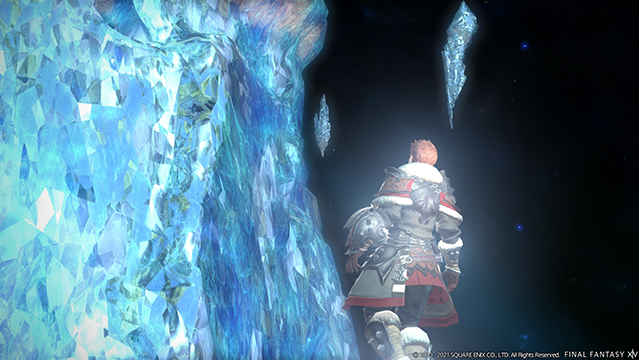
Kate (Lore, English):
The main teams we end up working with directly here in Japan are the event team (responsible for lore and story), and the cutscene team. I work with the former frequently on lore and naming checks. This involves a lot of them sending me large files to comment on, and also more casual back-and-forths via messenger where we ask questions, discuss ideas, or lament the fact that there are so many fire attacks because we’re really running out of synonyms.
When it comes time to translate and record the voiced scenes for main scenario, representatives from each language usually meet with the writer in charge about how long it will take to act out the lines that need to be synchronized to animations, to see if we need to adjust the script or performance in order for all languages to take roughly the same amount of time.
●Also, are there ever situations where the FFXIV localization team gives ideas to developers instead of localizing game content that’s already been created?
David (German):
The English team is actively involved in naming of skills and location names, etc. and the wider localization team is invited to provide ideas and concepts for new creatures from their various cultures. Then there are situations where we do culture checks and flag potential issues in the story to avoid misunderstandings or to cater to contemporary cultural developments.
Kate (Lore, English):
I do often provide ideas for names we could use for in-game terms, bosses, attacks, NPCs, places, titles, and things like that based on parameters from the team. I’m not sure how much people actually notice that stuff, but I’m always happy when my ideas get used. Like, “I’m helping!! Yay!”
●Now that we have an idea of the FFXIV localization team’s work flow, we’d like to ask some questions pertaining specifically to the game itself.
Even just the descriptions of character creation options such as race, job, and patron deity contain a vast amount of terms unique to FFXIV lore. What challenges are presented in localizing a title with such an expansive universe?
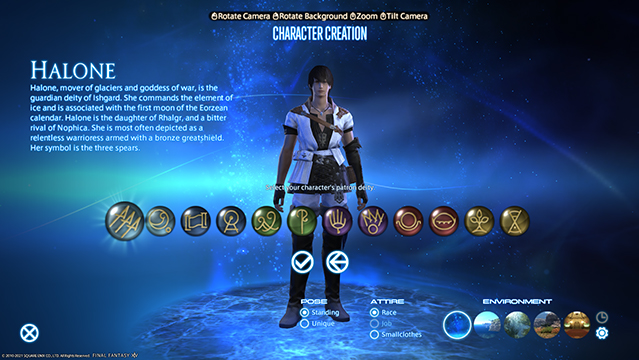
Pierre (French):
Nowadays, I would say consistency. I don’t think there’s anyone on the planet that can hold all the lore of FFXIV in their head, so we always have to check everything we write or translate regarding that. Working on a game that has been going on for such a long time also means that maintaining old text becomes more and more difficult and time consuming.
David (German):
Ensuring consistency throughout the lore and existing content is one measurement of quality in our translations. Of course, a translator’s experience is also very important. It can take years to get a grasp of the whole FFXIV world, as it is so vast. We also crosscheck each other’s work, while our editors and a full-fledged QA team are also on the lookout for potential issues.
Kate (Lore, English):
We kind of have trouble hiring new translators or getting help on the project, because there are few translators who have the ability and willingness to imitate the style of the English along with the intimate knowledge of FFXIV that is required to work on the game at this point. “Play 7+ years of MMO content and memorize everything, thanks─oh and hurry up, we’re on a deadline,” is probably not something one wants to hear on their first day of work...
On the development side, there is a lot of back-and-forth between Japanese lore folks and the localization team, as well as within our own team, when establishing those unique terms, because when we decide something, it will keep cropping up forever─to our eternal regret if we get it wrong.
●FFXIV often has collaboration events with other games and series. Does localization for those contents differ from purely FFXIV content?
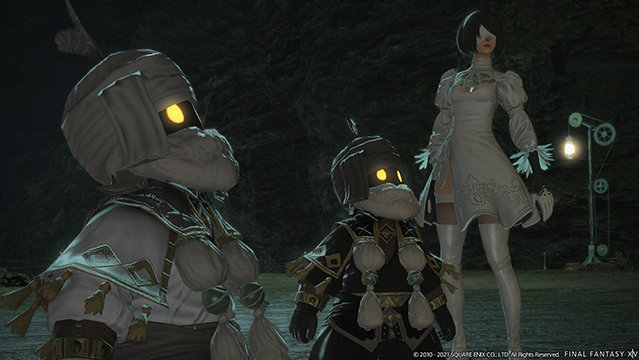
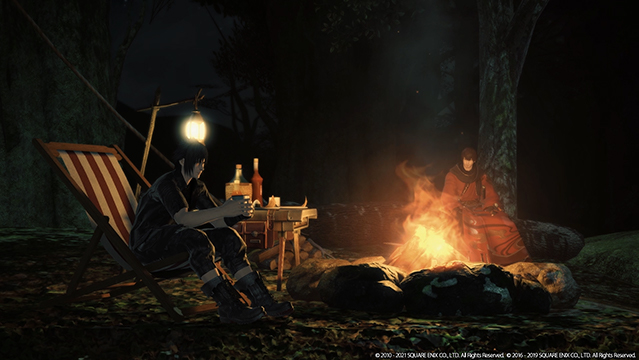
Pierre (French):
We have to use a specific glossary for the other game elements, like skills, place names, and more. Also, the person in charge needs to know a thing or two about the other game. You couldn’t ask someone who’s never played NieR to translate something based on YOKO TARO’s work, for instance. Then, we have to be careful when two very different worlds collide, like with FFXIV and FFXV.
● You mentioned how FFXIV’s regular patches and new content make its localization unique. Can you tell us about that in a little more detail? Are there any special steps taken to increase localization efficiency so as to keep up with FFXIV’s update schedule?
David (German):
The basic localization workflow is always the same: familiarize, translate, edit, quality assurance. That process is basically put into an endless cycle.
Kate (Lore, English):
And despite all of the planning and everyone’s best efforts, being involved in the lore development process with our cyclical schedule often results in a lot of spinning plates, at least for me. Since we do field a considerable amount of requests outside of the game text itself (patch titles, stuff for the Lodestone, lore books and liner notes and merch names, oh my), we rarely have the ability to schedule in advance and have everything go to plan. We just try to roll with the punches.
●If you have played other main series FF titles (I~XV), is there anything you’ve noticed while playing that piqued your interest or that you’ve ended up using in your work localizing FFXIV?
Pierre (French):
Some older translations are quite famous, so we do sometimes place a reference to them here and there. Though never at the expense of the story, of course.
Kate (Lore, English):
The Japanese side does a lot of work incorporating references from other FF titles into FFXIV in a variety of ways, and we keep those references intact as much as is possible in the localized versions, so there is not a lot of need for us to borrow further specific bits from those games. It’s also dangerous, in the event that the writers decide to reference that same stuff later.
In terms of less specific things, like the overall localization style: as in any type of writing, each translator’s style is going to be influenced by what they’ve picked up across the years from reading other translations and materials written in their target language, along with their personality and taste. In our case, our individual styles are also adjusted to be consistent with the overall style of FFXIV. So there isn’t a lot of room to take specific inspiration from other games, but their influence is probably in our work somewhere.
●FFXIV also allows people who don’t speak mutual languages to play together, including tools such as set phrases that can be automatically translated into other languages and sent to chat. Does an MMORPG with such a diverse playerbase present any unique challenges compared to one that’s only played in one language? What special steps are taken to accommodate for that kind of community?
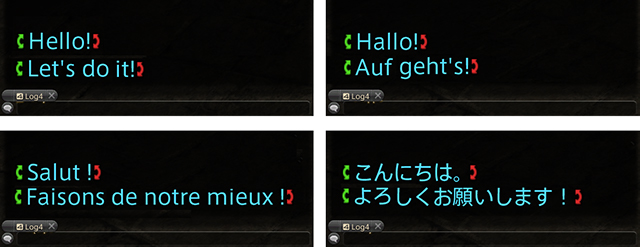
Pierre (French):
Like you say, there’s this tool of set phrases in the game that helps a lot. Apart from that, we try to be more conservative when translating system-related text, like actions, tools or interface names.
David (German):
For specific content like raids, we sometimes work closely with the other languages to make sure that our translations don’t differ too much. Most people are probably defaulting to English when teaming up, so German tends to look closely at the English terms when it comes to specific mechanics that are key to win.
While the meaning will be mostly the same in all three languages, the way the meaning is conveyed might largely differ as Japanese is not a language that you can always transport 1:1 into a Latin language. Furthermore, we try to work very creatively with the language and sometimes that means diverging from the source text to highlight a certain aspect of a characterization or story element better for our target audience.
●FFXIV has very passionate fans both in Japan and around the world. Continuing with the previous question’s theme, as a title aimed at a global audience is FFXIV’s localization less challenging than other titles in any way?
Kate (Lore, English):
Equivalent player experience and the dev team’s awareness of the global nature of this game are certainly a huge help. Prominent figures on the project, like Producer/Director Yoshida-san and World Lore Creator/Main Scenario Writer Oda-san, have a much more solid understanding of the mechanics, potential, and value of localization than most people in the industry, and trust in our ability to do our jobs. We’re not put in the position of delivering work that we know is going to disappoint English speakers, because if there is anything that really will not translate well, we can always consult with the devs about changing it in one or all languages. The popularity of the game in English markets is a testament to the fact that this way of operating is good for players, too.
Pierre (French):
Since the game is in constant development and translation, we can always suggest changes when we find something that could be improved. And since the next patch is always around the corner, we can fix old mistakes when we (or our devoted fans on the forums!) find one. Those millions of pairs of eyes certainly help!
Thank you for your time!
Don’t miss part 2 of our FINAL FANTASY XIV localization team interview where we dig even deeper into FFXIV’s world and characters, the challenges of localizing unique cultural nuances, and more!
FINAL FANTASY XIV Localization Team Interview! Part 2
With over 20 million total registered players and a new expansion on the way, there has never been a better time for newcomers to begin their adventures in the critically acclaimed FINAL FANTASY XIV Online saga. The recently expanded Free Trial now includes all content from A Realm Reborn and the Heavensward™ expansion (and updates through Patch 3.56), as well as an additional playable race (Au Ra), and three additional playable jobs (Dark Knight, Astrologian, and Machinist). Free Trial players can enjoy hundreds of hours of award-winning gameplay and story experiences equivalent to two full FINAL FANTASY titles, without limit on playtime.



